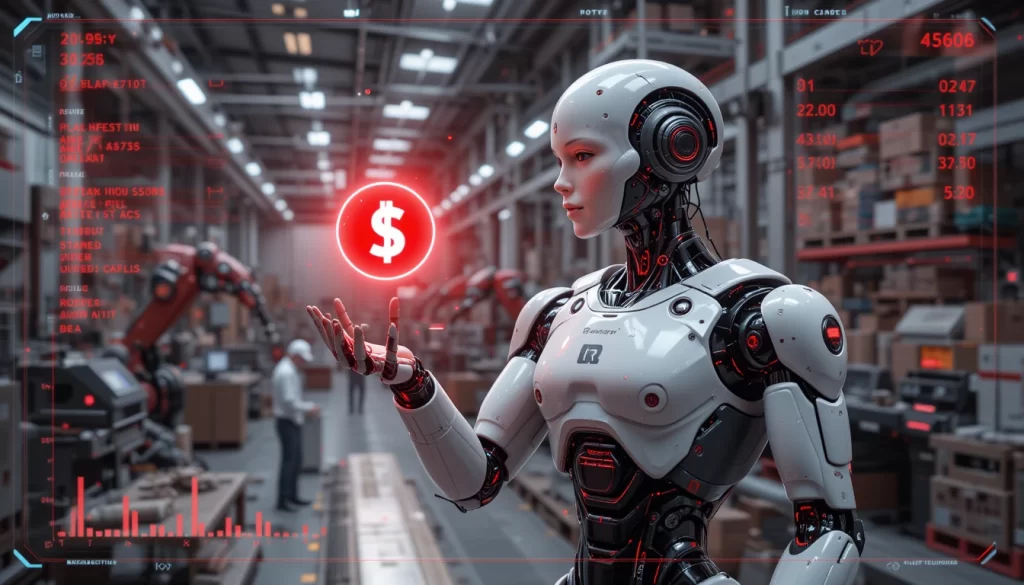The rise of decentralized finance (DeFi) has already transformed how we think about money, lending, and investing. But what if DeFi could do more than just disrupt traditional finance? What if it could help us choose the best robots for the job? This might sound like science fiction, but the convergence of DeFi, artificial intelligence (AI), and robotics is creating a future where decentralized systems can optimize the use of robotic labor. Here’s how DeFi could play a pivotal role in this emerging ecosystem.
The Problem: Choosing the Right Robot
As robotics and automation become increasingly integrated into industries like manufacturing, logistics, and healthcare, the challenge of selecting the right robot for a specific task is growing. Factors such as cost, efficiency, reliability, and compatibility must be carefully weighed. However, the current process of matching robots to tasks is often centralized, opaque, and inefficient.
Enter DeFi—a system built on transparency, efficiency, and decentralization. By applying DeFi principles to the robotics industry, we can create a marketplace where robots are selected and compensated based on their performance, creating a more dynamic and competitive ecosystem.
How DeFi Can Help
- Decentralized Marketplaces for Robotic Services:
- DeFi can enable the creation of decentralized platforms where businesses can “rent” robotic services. These platforms would use smart contracts to automate agreements, payments, and performance evaluations, ensuring transparency and trust.
- For example, a factory needing a robot for a specific task could post its requirements on a DeFi platform. Robots (or their owners) could then bid for the job, with the best option selected based on predefined criteria.
- Tokenized Incentives for Performance:
- Robots could be incentivized to perform well through tokenized rewards. For instance, a robot that completes tasks efficiently and reliably could earn tokens, which could be used for maintenance, upgrades, or even traded on decentralized exchanges.
- This system would encourage continuous improvement and innovation in robotics, as robots with better performance would earn more rewards.
- Data-Driven Decision Making:
- DeFi platforms could leverage AI and machine learning to analyze data from robotic performance. This data could be used to rank robots, predict their suitability for specific tasks, and optimize their deployment.
- By making this data transparent and accessible, businesses could make more informed decisions about which robots to use.
- Fractional Ownership of Robots:
- DeFi could enable fractional ownership of high-cost robots, allowing multiple investors to share the costs and benefits of robotic labor. This would make advanced robotics more accessible to small and medium-sized businesses.
- For example, a group of investors could pool their resources to purchase a robot and lease it out through a DeFi platform, earning a share of the profits.
Real-World Applications
The potential applications of DeFi in the robotics industry are vast:
- Manufacturing: Factories could use DeFi platforms to dynamically allocate robotic resources based on real-time demand, reducing downtime and increasing efficiency.
- Agriculture: Farmers could access robotic labor for planting, harvesting, and monitoring crops, with payments and performance managed through smart contracts.
- Healthcare: Hospitals could deploy robotic assistants for tasks like sterilization or patient care, with their performance tracked and rewarded on a decentralized platform.
Challenges and Considerations
While the idea of using DeFi to choose the best robots is promising, it is not without challenges:
- Technical Complexity: Integrating DeFi with robotics requires sophisticated technology and infrastructure, which may take time to develop.
- Regulatory Hurdles: The regulatory landscape for both DeFi and robotics is still evolving, creating uncertainty for businesses and investors.
- Security Risks: Ensuring the security of decentralized platforms and robotic systems is critical, as vulnerabilities could lead to significant financial and operational losses.
A New Era of Robotic Labor
The convergence of DeFi and robotics represents a new frontier in automation and finance. By leveraging the transparency, efficiency, and decentralization of DeFi, we can create a system where the best robots are chosen for the job based on their performance and value.
